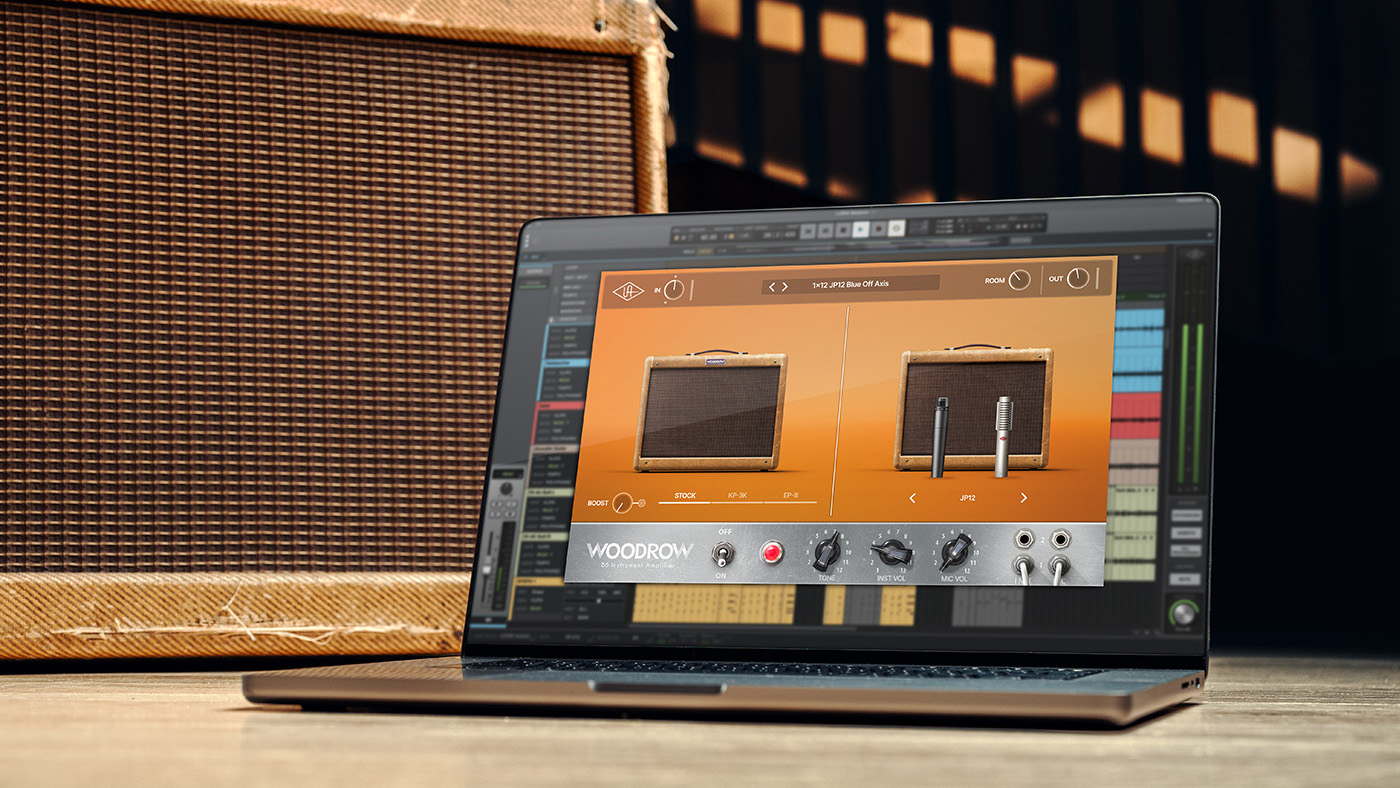deadmau5: “The Moog Voyager - I can't seem to escape that synth. It’s the last good Moog”
The mouse-headed king of electronic music on trackers, Web3 and his 30-foot modular set-up
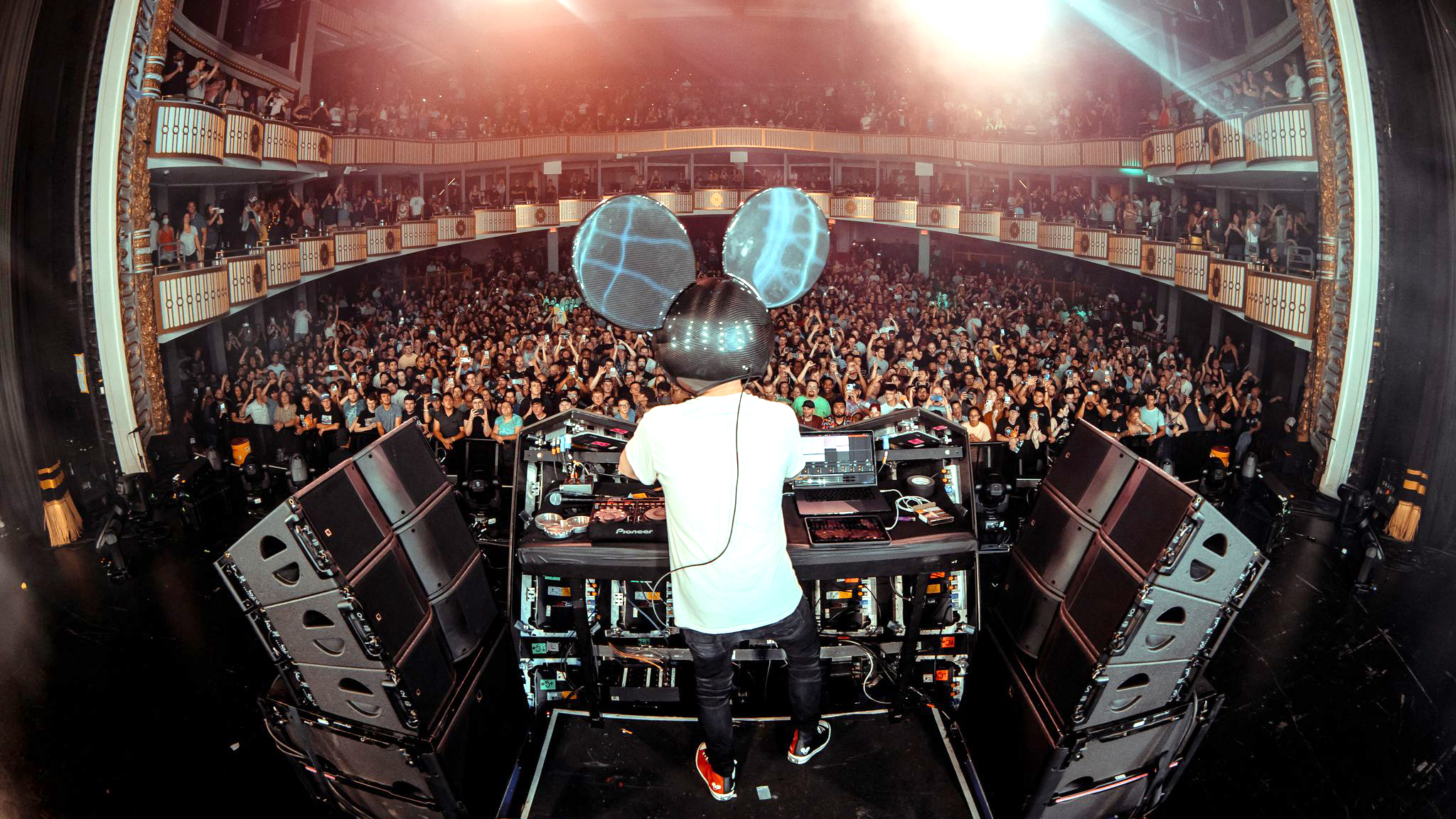
It’s something of a cliché to state that an artist needs no introduction, but with deadmau5, this may in fact be true. His big-eared mouse helmet might possibly be the most recognizable brand in electronic music.
Finding globe-sweeping success in the late ‘00s, deadmau5 played a pivotal role in pushing electronic sounds into the US mainstream, becoming one of the world’s highest-played and highest-paid electronic artists in the process. Grammy nominations, platinum records and world tours soon followed, as the producer courted adoration and controversy in equal measure over the next decade.
Fast forward to 2022, and deadmau5 remains as influential as ever, and no less exploratory: continuing to produce electrifying singles that reimagine progressive house with each release, he’s nurtured the careers of like-minded artists through his label, mau5trap, and entered into the software world with the development of OSC/PILOT, an innovative performance tool for electronic artists.
For a man that’s notoriously averse to interviews, we find mouse-headed super-producer deadmau5 in a relatively good mood. Speaking to us, sans headgear and cigarette in hand, from his home in Ontario, Joel Zimmerman seemed content to spend an expletive-sprinkled thirty minutes talking shop, painting a picture of an artist equally excited by the technology used to create and perform music as the music itself.
Can you tell us about some of your favourite software tools?
“I don't know, man. I guess everyone was like “fuck it” during the pandemic. Nothing really crazy has really advanced that far. To be honest, I feel like we've kind of ceilinged on music software. There's a lot more of the same that’s come out, like… oh hey, it’s a new reverb. Nothing’s really stood out. But then again, I hadn't really been looking.”
So you think we’ve hit a wall in terms of advancements in music software?
Get the MusicRadar Newsletter
Want all the hottest music and gear news, reviews, deals, features and more, direct to your inbox? Sign up here.
“Well, you can always do better, faster, more efficient. But in the realm of DSP, I almost feel like we've hit it all. It's just a lot of the same. And I'm just like, waiting for a lot of things to get overhauled and done a different way. I'm seeing some new DAWs come out, and stuff like that. The ones that I'm liking the most are the ones that have a lot of really cool protocol control inside of them.
I feel like we've kind of ceilinged on music software. In the realm of DSP, I almost feel like we've hit it all
“Ableton’s been cool, just because it's 18 years in development, it's nice and stable and all that stuff. And it's shell-ready. But it really lacks in protocol modularity. It's just like, oh, here's MIDI. Here's an antiquated 60-year-old protocol you guys can still use… like what? Just have OSC! And they do, but you have to do it in Python or use Max for Live, and there's no native OSC stuff. So actually, a lot of the time I've spent during the pandemic was developing a VST that will allow for the interchange of different protocols in and out of any DAW.”
What DAW are you using the most these days?
“I switch between all sorts of things depending on what it is that I'm trying to do. For MIDI-deep stuff like I tend to go to Cubase for better control. Because Ableton is not so great for that, but Ableton is good for quick and dirty. So if I just need something quick and dirty, I'll just go in there and do some quick edits.
“It just depends on what it's called for. Because a lot of the mixing I'll do on my desk, and neither Cubase or Ableton supports SwiftMix for my Neve console, but Pro Tools does. So I gotta use that for that, so I can recall faders and stuff like that on my desk. It's a big mess of different DAWs for different things.”
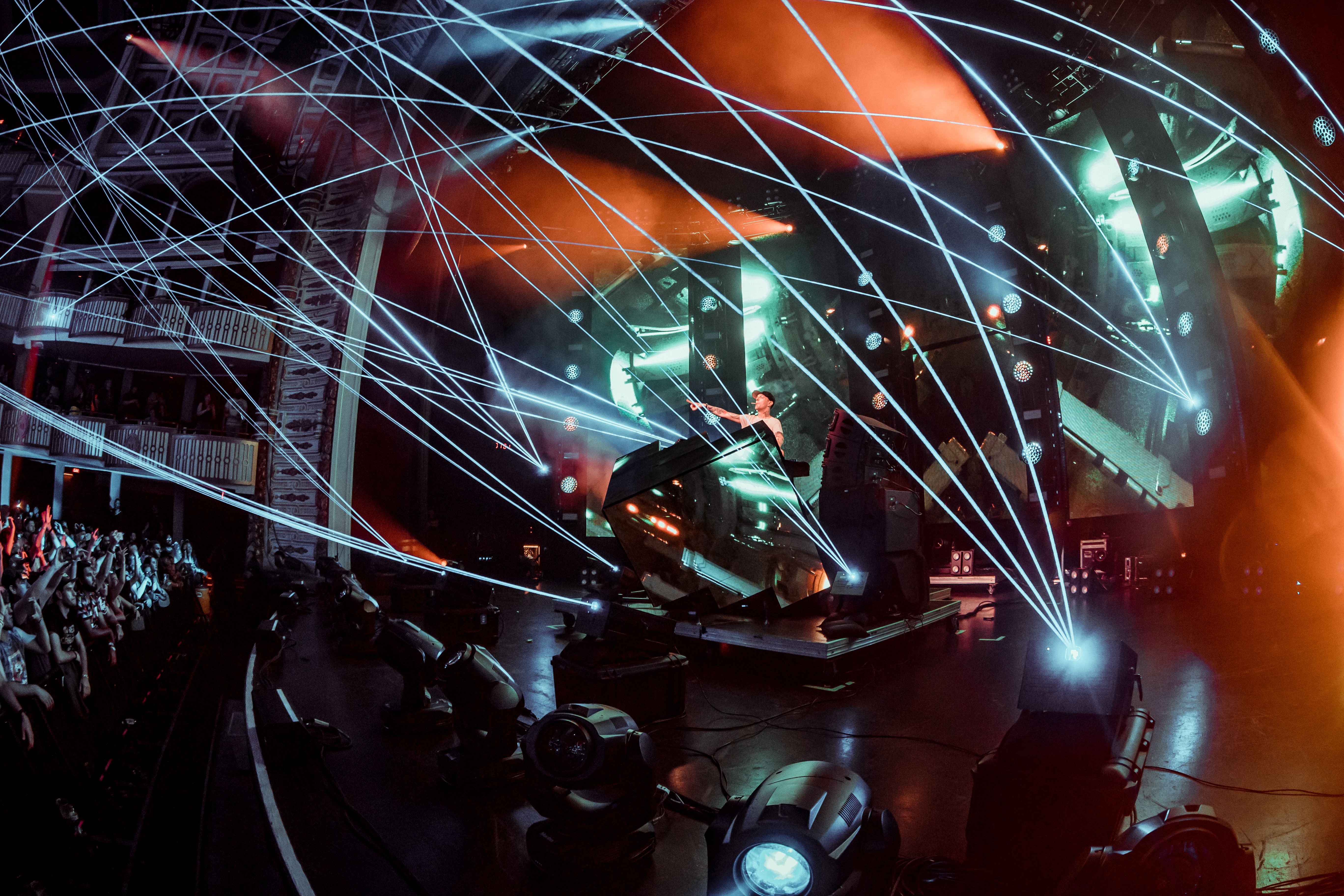
Tell us about the approach behind the production on your latest single, XYZ?
“I don't think I really had one. It was just like, okay, time to sit down in the studio and crank one out. It was just a lot of farting around and tooling and playing with some synths, and just coming up with this main hook thing. And I was like, okay, I can work with that. And then I just built around that.”
Were there any particular instruments, synths or effects that were fundamental to the track?
“I did get to finally try out VCV Rack 2.0. I’ve been waiting so long for this. VCV Rack has always been great. But 2.0 finally has sample-accurate sync with the plugin in a DAW now. The other one, you had to use a host and it was a little late here and there, and the sync wasn't nice and all that stuff. But now in VCV Rack 2.0 Pro, they have a host that works in any DAW that's sample-accurate, finally, and it's fucking amazing.
“Because a lot of the modules, these days at least, with modular racks, if you go out and buy a bunch of mods, chances are one in three, it's going to be a digital module, which means it's just lines of code. So there's all the Mutable Instruments stuff, and all the really cool fancy expensive ones, you can buy for like next to nothing through VCV Rack, and they're the exact same module. Even better, because you don't have to record the analogue path. It's just printing it digitally, right there.
“A lot of those oscillators are great. Obviously, not so much the analogue oscillators like you’d get out of a Cynthia or something like that. But the digital oscillators, all the wavetable stuff and the digital FM ops, and stuff like that are fucking great. So I actually did get to use that on XYZ. That was kind of cool.”
Do you have a physical modular set-up too?
“Oh, you clearly didn’t Google that. Yeah, I’ve got a 30-foot wall. I’ve been known to collect the analogue modulars.”
What was the last module you bought?
“The last module I bought was probably my third Yarns from Mutable Instruments, because like I said, it's got to be at least a good 20, 30 feet. Having just one MIDI-to-CV converter somewhere in there is kind of inconvenient, because I have to patch out to mults, and then into other things. So I had to get three to space them out throughout the system, so I can reach cables to certain banks of oscillators without having to go through like 20 mults just to get to the other side of the synth.”
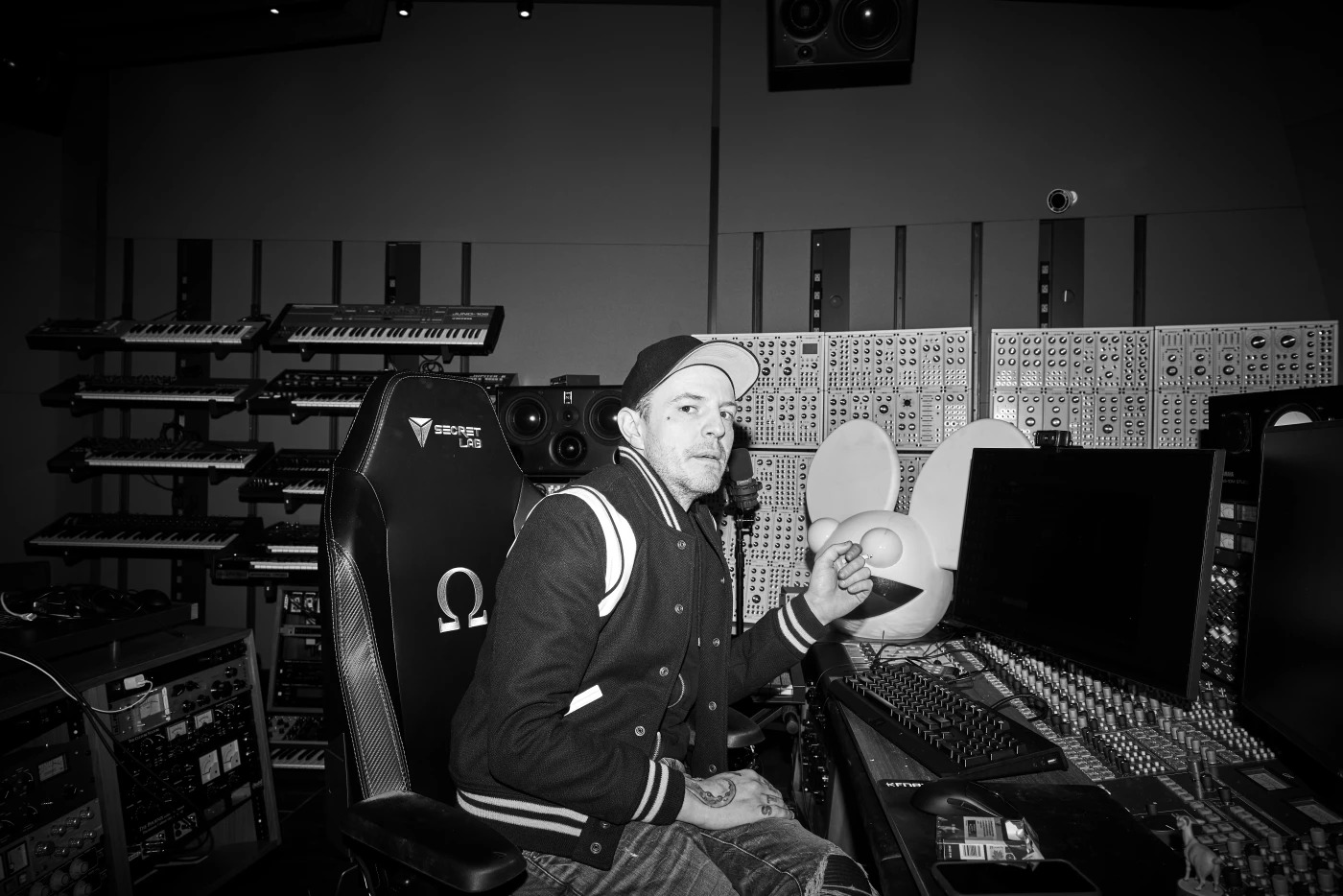
Having a modular synth that large, is there ever a point where you’re confronted with too many options?
“Yeah, but it's not crippling. It just means I get a different result every time, which is kind of nice, as opposed to just doing the same thing over and over.”
Looking back now to when you first started producing, you were using Impulse Tracker, right?
“Yeah, actually. Wow, see - he knew that. [laughs] Actually, if you want to be stupid about it, my first song was written in Turing. Then I upgraded to MS-DOS. Jeffrey Lim, the Australian guy, wrote Impulse Tracker. Scream Tracker was their other one, those were the two big trackers back in the early ‘90s. I did cracktros - that was fun.”
How did things progress from there?
“I hung around in that scene for a while, and then met some dudes and hung out with like minded people who did the same thing, and then showed them what I was using, versus what they were using. It was a very small collective back in the day, because the Internet was not as big. And there definitely weren't any real life clubs of people using trackers or anything like that. It's not like I had a friend within 100 miles of me that even knew what a tracker was, much less knew they could make music on a computer alone.
“It was just a case of putting feelers out there, putting in some footwork and meeting a couple of likeminded people. Then moving within those tribes and creating opportunities for myself to apply those skill sets into real world practicalities, like working in a radio station, or making advertisements or composing music for stock library stuff. And that's kind of where it all stemmed from.”
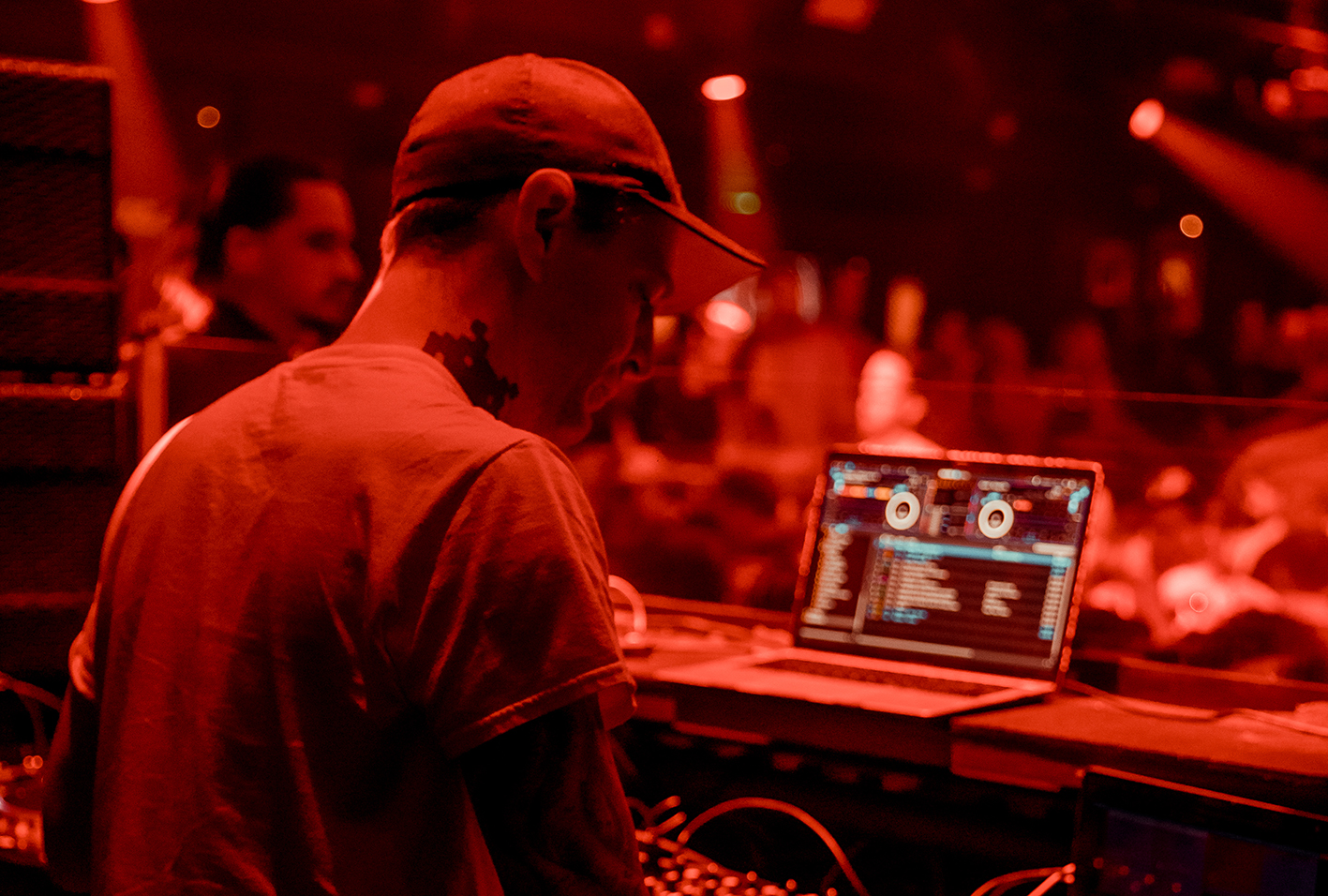
Do you still use trackers today?
“Not really. Matter of fact, I don't even think I could probably get around an Impulse Tracker anymore. I've seen it, I know what it looks like in my brain. You know the old monitors when they would burn the image into the monitor? That's what I'm seeing in my brain, but I don't think I could figure it out. I don't know if it's like riding a bike. They're all very programmatic. It was a lot of using the arrow keys. And no mouse - once you load the tracker, you just put the mouse to the side and use your keyboard and navigate around that way.
“There are some plugins that will emulate what trackers do. Even then, if you just want to run a pure tracker, you’ve got to run a virtual machine or something to emulate that MS-DOS functionality and all that stuff, too. I think that's all deprecated in Windows now.”
Would you describe yourself as more of a keyboard-and-mouse producer or someone that’s more tactile, and likes working with real instruments?
“Keyboard and mouse all the way. Some people will have that kind of muscle memory and those skill sets ingrained in their brain to be able to put their hands on some tactile instrument and put out their idea and do whatever they want. But I've gone through those motions where I tried to train myself to be a proficient player, but the right brain turned on and I'm like, well - why? So I just kept doing what I was comfortable with. There's no better way to do that, and everyone's different. For me, it just worked out that I've just got a very input/output brain.”
How often are you experimenting with new gear?
“I've got my mainstays, which contribute to the tone and sound you’ll hear in my music. You know - you hear a fucking saxophone and you know it’s Kenny G. I do introduce new stuff from time to time just for fun, and playing with it and experimenting and stuff like that. But I'm not like Richard Devine, where I get a new gadget every fucking 20 minutes. He probably just got another one in the middle of this call, and then he's rocking away on it, but that's him. You know what I mean? He loves doing that shit. I love that guy.”
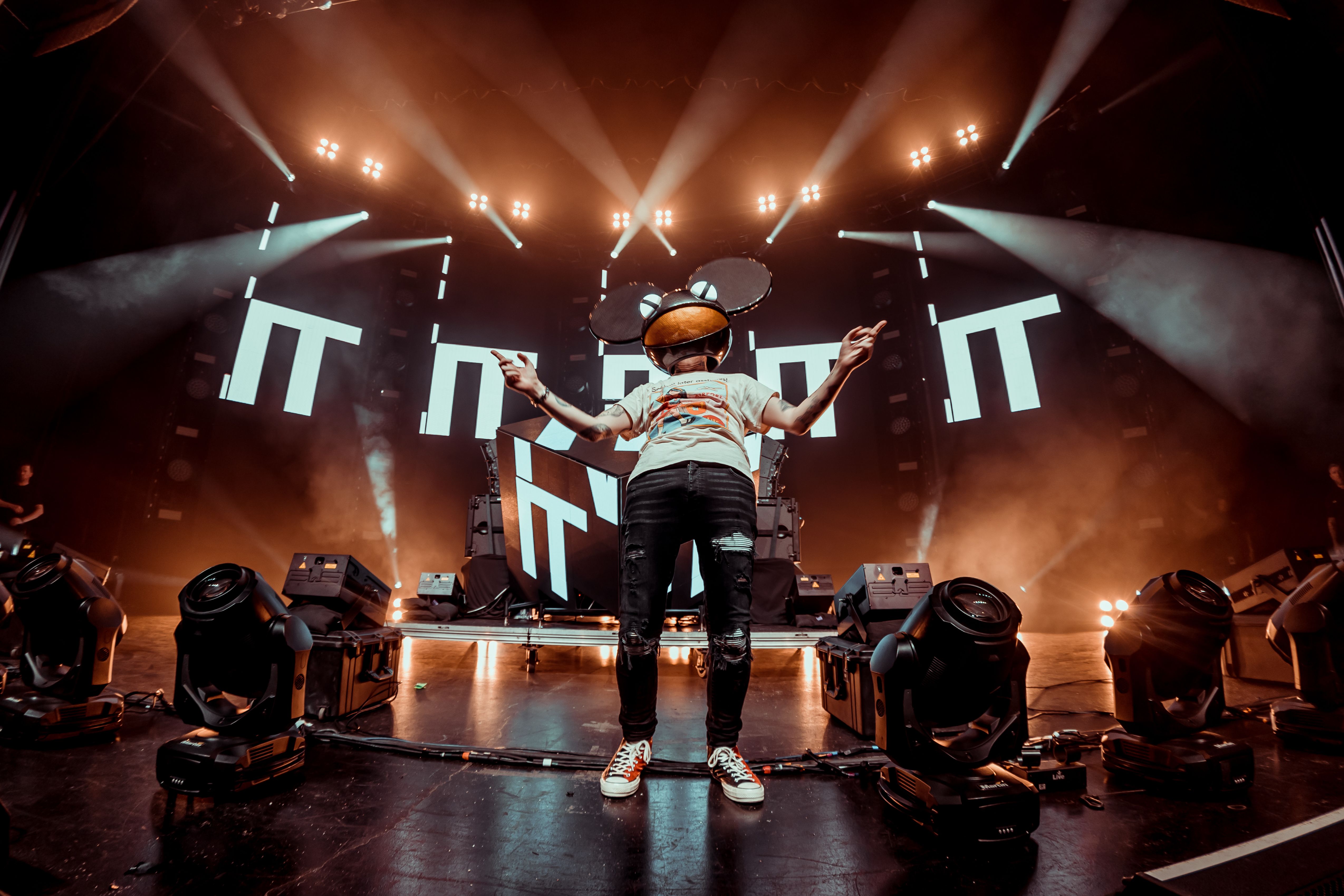
Where does he find the time?
“I just want to know where he puts it all. There's no way he's fitting all that in the studio. This guy's got to have a warehouse full of shit. So many companies are just like, yo! Try this. Try this. Try this. If you follow him on Instagram, it’s great. If I built a synth, I’d get him one - for sure.”
When you say mainstays, could you go into more detail on what instruments you’re talking about?
“I really, really love my Colossus these days, the Analogue Solutions Colossus, which is a kind of an EMS Synthi 100 clone. Which was like a big old archaic synth, and nearly impossible to get in good condition. This guy Andrew at Analogue Solutions makes these clones of it. Obviously they're huge, they're massive, they take up the whole fucking island in my studio. It’s got 16 oscillators, you can't go wrong there. Of course I'm only really using like four or five in most cases, I have yet to max the thing out, but it's a really good canvas for me to start creating simple patches and stuff like that.
“Also the Moog Voyager, I can't seem to escape that synth. It’s the last good Moog. Everything else has just been kind of… don't get me wrong, bless Moog, but they really cheaped out after that.”
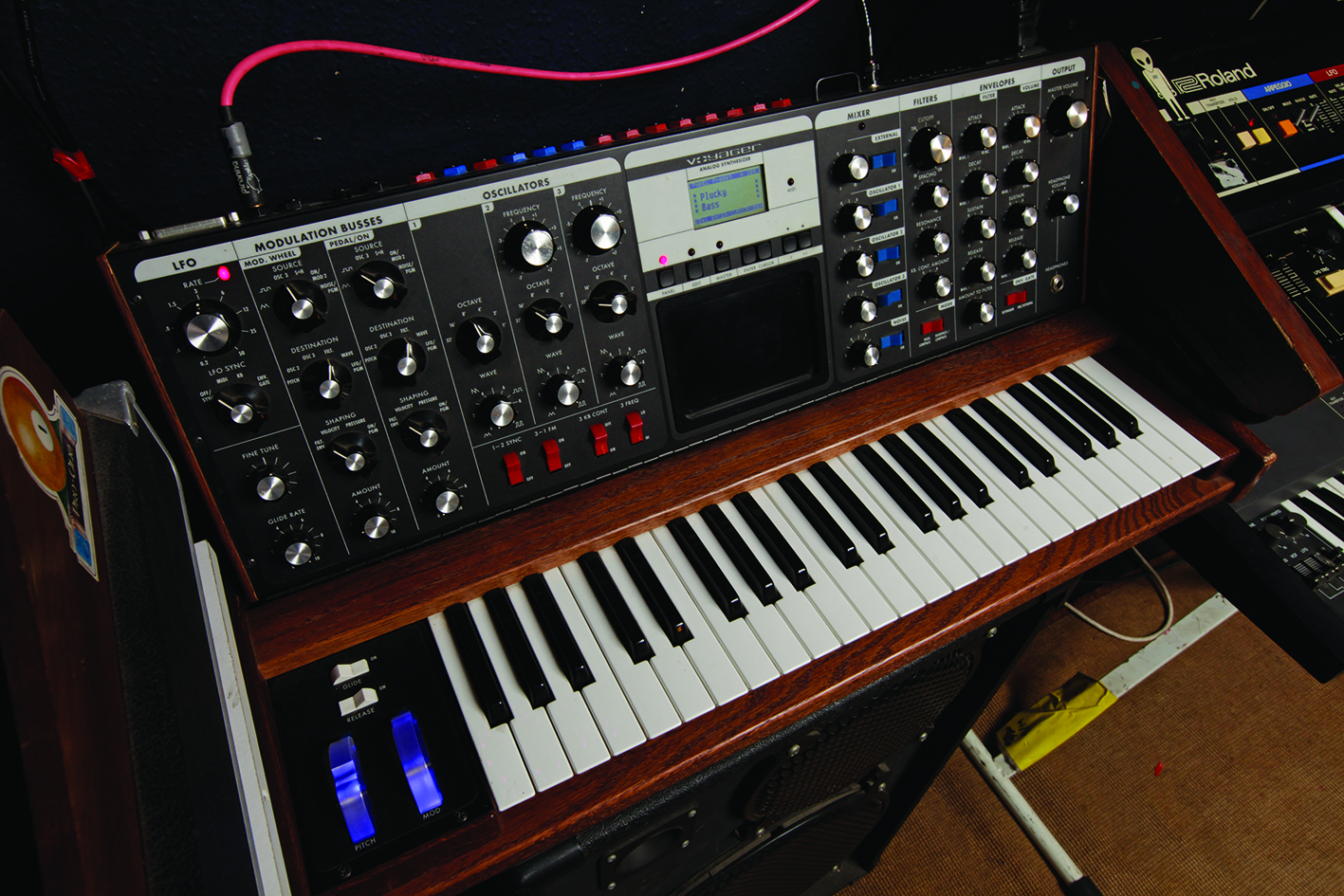
When it comes to drums, do you synthesize your own or are you working with sample libraries?
“It’s a mix of both. Sample libraries are cool, but sometimes you want something really bespoke. So it's just digitally compositing some synth sounds with some transient sounds from here and there. I don't spend too much time on it, but from time to time, I'll make my own little samples to use. But more often than not, they're just straight recordings of synth lines and stuff like that from the gear on the wall.”
Is there anything on your wishlist studio-wise?
“I want the Super 6. I can easily get one, I just haven’t yet. It’s simple, but I hear it sounds great. I like that kind of stuff - no bullshit, no surfing through a tiny LED screen. Nord Leads are cool, they have a sound, but it’s just getting around those fucking things, like come on. That’s also why I like the Voyager. It’s all just right there. Just show me where the knob is and that’s it. I don’t wanna go menu-diving.”
There’s definitely something to that instantaneous quality where you can get going straight away.
“Yeah, which is great. But in a live setting, not so much. Because then you gotta remember what was what. At least for the Voyager it’s kind of 50/50, where you can kind of program a patch and then recall it with a PGM change or something like that. But with something like a Model D like, you know - good luck. You're gonna get a different result every time - which may be what you want - but not close enough to the original.”
You've said before that you try to master your tracks as you go along, rather than leaving that process until the end. Is that still an approach you take now?
“Sure, but there’s obviously some time at the end where I’m like, done, quote unquote. Then I’ll spend a little more time cleaning up the arrangement and the bells and whistles and all that crap, and listening through and doing my thing as expected. But I do tend to get the middle part of the song about 80% of where I want it to be on the release before I’ve even finished the song. It’s just how I like to work, because there’s something more motivating about working on something that sounds good, versus something that sounds shit, where you’re like - oh, it’ll sound good when it’s done.”
“I think that's what deters people from music in general. A violinist will be playing by themselves and thinking it doesn’t sound great - but it will when there's four of us. It’s distracting, and some people can't envision those extra layers. It's kind of the same brain when it comes to making electronic music.”
More and more these days, people want instant results.
“Oh fuck yes. Absolutely. It’s just getting worse and worse as we move through time. Or I’m getting older.”
What do you make of these stripped-back, one-knob plugins that keep coming out?
“It’s cool, it’s forward-thinking, and I like that. But that opens the door to homogeneous production pipelines.”
I suppose there’s a good side and a bad side.
“Yeah, it’s fucked up. It's like the whole CG community that has infiltrated electronic music, or DJ culture, or festival culture. It’s absolutely a joke. The least-paid intern at Method or Blur Studios could run circles around some of these guys. A guy shows up one day to the very first music festival and says, “I'm a graphics guy!” - and then he busts out a little laptop running Resolume and and then all of a sudden he's commandeering 16k worth of visuals at EDC.
“Then you put them in a professional setting, with people who have actually been doing this their whole lives, and he's a fucking joke. But he had those tools, you know what I mean? It’s spawned this huge industry of fucking shitbags. Okay, not shitbags, but just… incompetent, or people not quite at that level yet, or people who are at that level because of this software. It’s like a raccoon population in downtown Toronto, that's the best way to fucking see it.
“Sometimes there's no escaping that. And then the bar is just so fucking low, and the same could be said for music. Someone's got that cool idea, and then applies that one thing that no one bothered to do, because no one's thought of it. There's always got to be a first. Then that'll take off and then someone will emulate that, and then someone will find out how everyone's been emulating it. And then it'll just become a Web3 application where you can go and make fucking EDM bangers.”
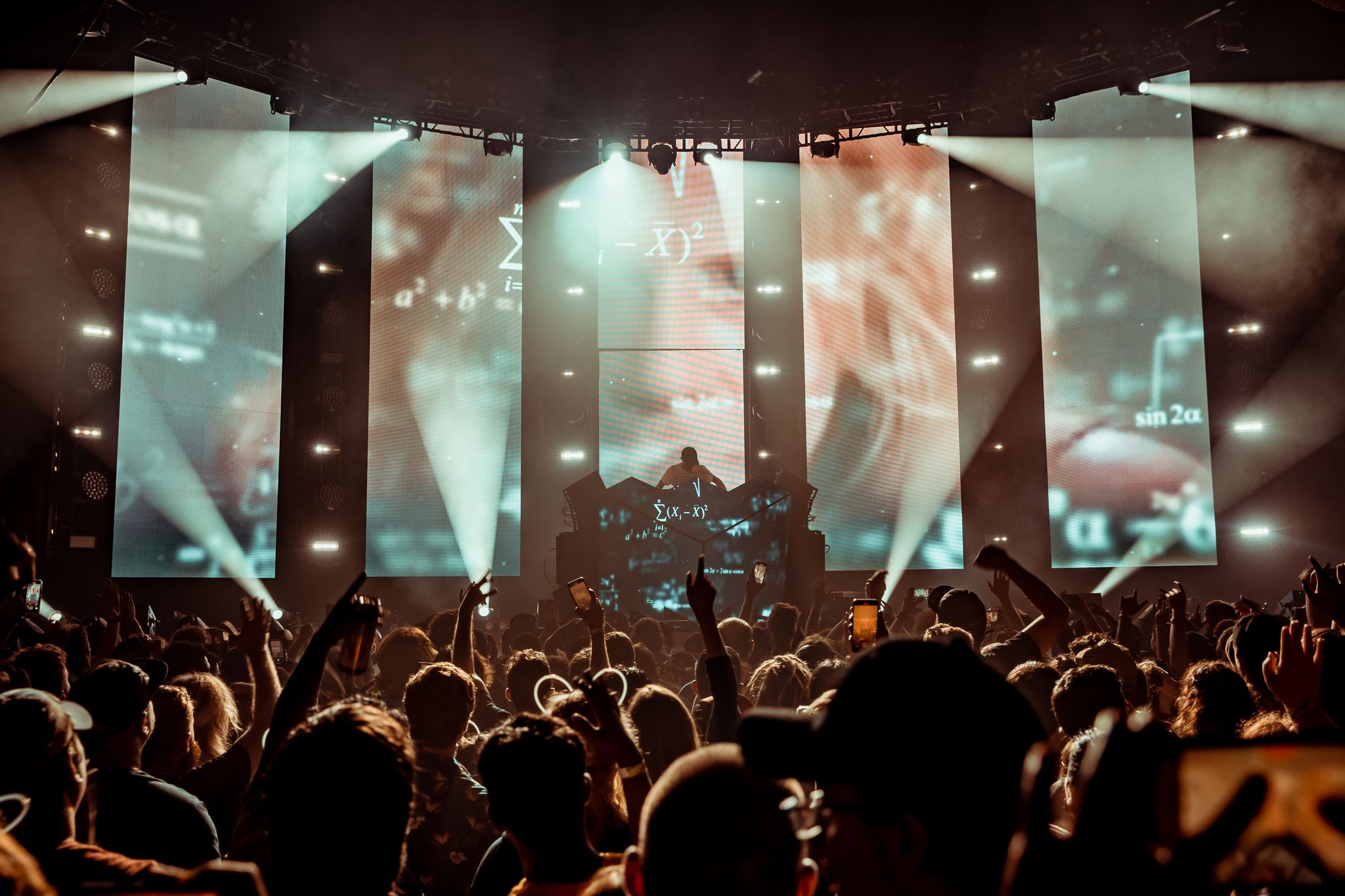
You’re involved in the Web3 space, right? Could you elaborate on that?
“It’s like Web2, but one better.”
Have you worked on an NFT project?
“I wish I had a different way of explaining that other than without using that fucking word. NFT has this connotation that makes me cringe. And I'm involved in it, you know what I mean?”
What excites you about the technology?
“The way that blockchain can be used as a store of information or value to a holder. That's the basic breakdown of it. I know, it’s like… “but the monkey’s actually mine!” That's not what that means. It's a different layer of abstraction of where an artist can exist in a space, and have the tools and protocols to give them more control over what they do, versus the traditional method: “oh, I'm starting to make music, shit I need a manager to manage me, I need an agent to agent me, and I have to get on to Apple and Spotify to be heard, I got to make a TikTok so little idiots can watch me do dances.”
All we can do is push forward with the technology, if it’s proven, and do what we do
“There’s real traditional methods to get music out. Or maybe not get it out, because no-one ever got famous because they're really huge on the blockchain. But I mean, the monetary stuff, the control stuff. Because the end of the day, okay, you did all this work and 10 years into your fucking career, but you're out - conservatively - 50% of control over your own shit. Because you got your label, you got your manager, you got your rights, you have neighbouring rights and all this fucking shit too. The blockchain lets you govern more of that, if not all of it.”
So the appeal for you is the potential to build new models for publishing and royalties?
“That’s the idea, but it’s been an uphill battle, no thanks to this fucking NFT shitshow. That’s really put a bad stigma cloud around it. Where’s 3LAU? Where did you go? What happened with this big fucking steam? Oh, you spent it all in a week. That had some really good steam behind it. But what happened?
”I'm not saying it's his fault by a longshot, he did a great thing. But the whole stigma of the coin ownership or the token ownership and all that got muddled in with some fuckhead in New York selling a fucking picture of a monkey and pissing everyone off. That was a big step back for DAOs - even though they have nothing to do with each other. You start throwing around acronyms at people and then somewhere along the line, you're gonna have to say non-fungible token.”
I suppose in most people's minds those two things will just get conflated.
“Oh, everything gets conflated. It’s like explaining critical race theory to somebody south of Virginia. They’re like, “oh, I hate it!” - and it’s like, do you know what it is? “No, but I don’t like it!” It’s just stupid. But it is what it is. All we can do is push forward with the technology, if it’s proven, and do what we do.”
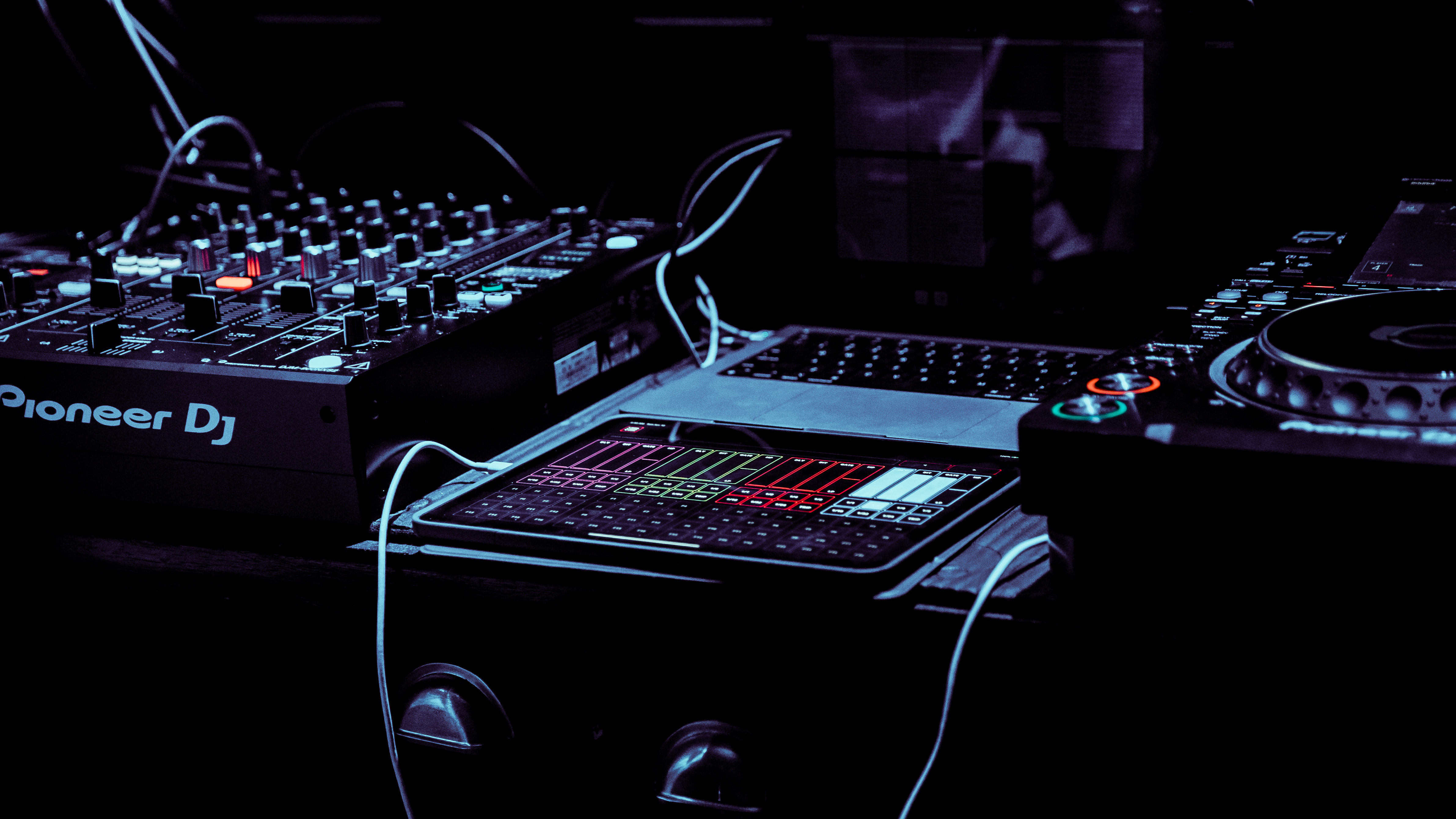
Can you tell us about the live performance software you’ve developed, OSC Pilot?
“We're always tooling at it. There hasn't been a major update lately, other than we got it working and compiled on Metal, which means we can have it on iOS and iPad, which is really cool. My favourite thing about OSC Pilot is that we really lit a fire under Hexler’s ass. He wrote Touch OSC 2 to keep up, and he really did a good job with that too, so kudos to him. We're both developing the same things in parallel.
How has this not replaced MIDI? And where is this MIDI 2.0?
“There were a lot of things lacking in the PC department, or the multi-platform department that allowed me to use what is to me a great protocol for music communications, where it's note data, float data, controller values and stuff like that. I was like - how has this not replaced MIDI? And where is this MIDI 2.0 that has warranted a whole coalition or group of experts that have just been talking about the spec for years and years?
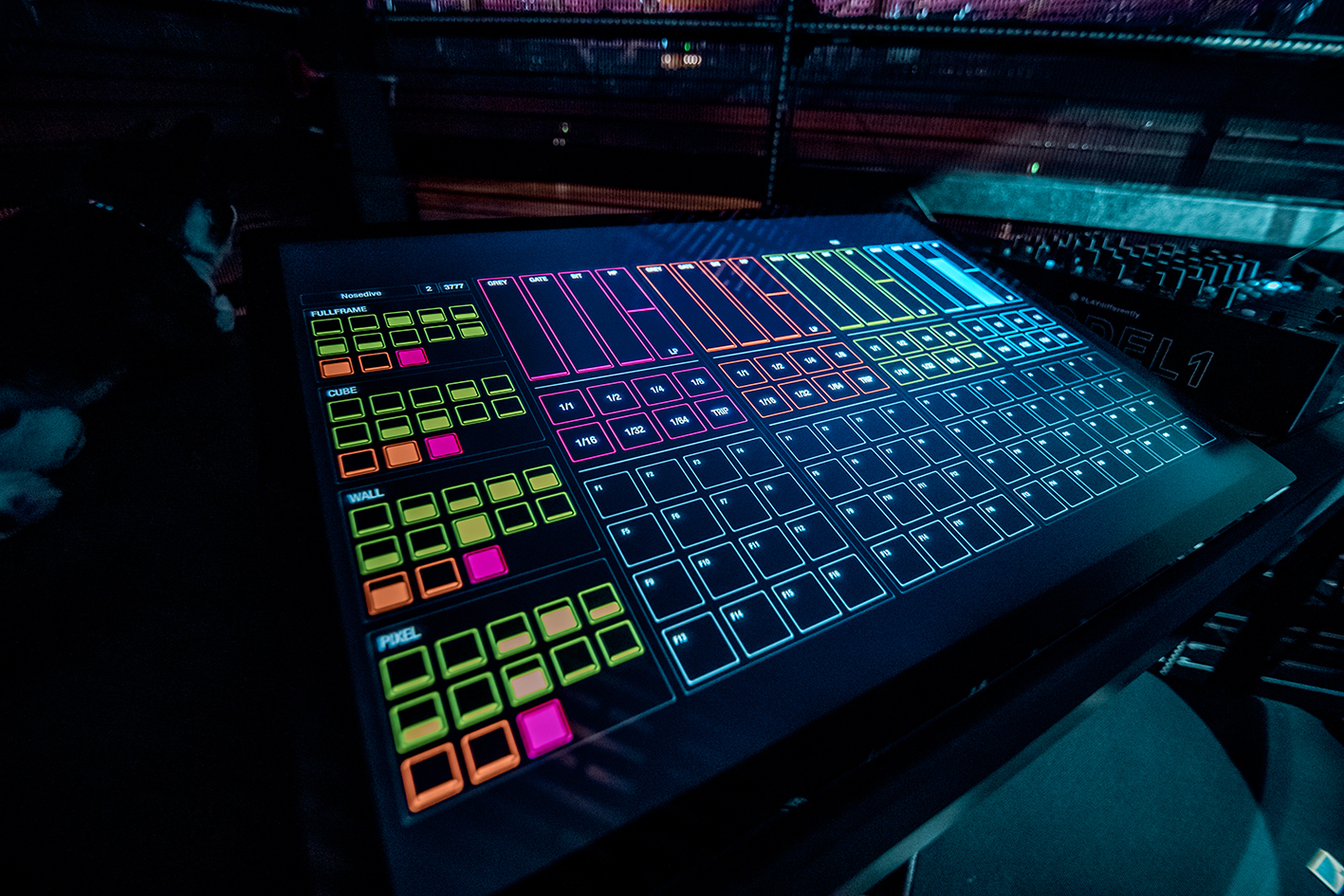
“It’s like, fuck you guys. I'm not waiting on this. I'm gonna use an existing protocol that is open source, and I’ve developed my own tools around that. And all the better if people can find it useful, I'll put them into a more usable application for everyone else. So that's the thinking behind that. So it's not like I'm pouring my life savings into pushing this application because it's going to be huge. It's a very fucking niche group of people, but as long as I'm one of them, then it serves me a purpose. And that's great.”
What would you like to see developed in the future in terms of music technology?
“I enjoy a good surprise. But I would love to see more protocol support in the DAWs, up to and including DMX. Or scripting capabilities that are native to the DAW and not some bullshit workaround that has to make it run a different API on a different thread. Because Max for Live does not run natively in Live, it's not part of that same thread. It's just another executable inside it. It's no different than running it side-by-side on the same machine.
“I’d like to see more native protocols in applications. There’s a new DAW called Ossia, it’s fucking crazy. But it’s procedural. If you're familiar with DAWs, and you open that up expecting that you're going to be making something in the first hour, forget it. If you're a CGI person reading this, it’s like the difference between 3DS Max and Houdini.
“It's all very procedural, network-driven, like node topology, shit like that - it definitely is not for everyone. But Ossia is a protocol heaven. It'll do OSC, it'll do DMX. It'll do whatever the fuck you want. And it's all native into the engine too. It's really cool. But it would require so much tooling for me to be able to produce a massive live project that will be performable and entertaining for up to two hours.”



I'm MusicRadar's Tech Editor, working across everything from product news and gear-focused features to artist interviews and tech tutorials. I love electronic music and I'm perpetually fascinated by the tools we use to make it. When I'm not behind my laptop keyboard, you'll probably find me behind a MIDI keyboard, carefully crafting the beginnings of another project that I'll ultimately abandon to the creative graveyard that is my overstuffed hard drive.
“Excels at unique modulated timbres, atonal drones and microtonal sequences that reinvent themselves each time you dare to touch the synth”: Soma Laboratories Lyra-4 review
“A superb-sounding and well thought-out pro-end keyboard”: Roland V-Stage 88 & 76-note keyboards review
